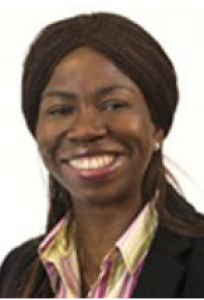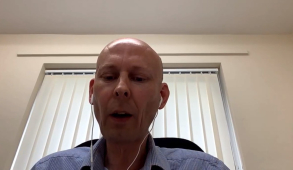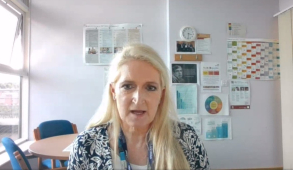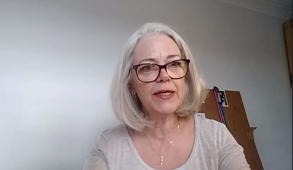HFMA summer conference: finance staff urged to help tackle health inequalities
Dr Owolabi (pictured), who is also a practising GP, told the HFMA summer conference that the NHS must continue to build on its incredible work by proving ‘exceptional healthcare for all’. She continued: ‘I emphasise “for all” because we need to ensure communities and individuals are not left behind.’
And she urged NHS staff to consider the legacy they would leave behind. ‘If you are a medic, a nurse, an allied health professional, or indeed a director of finance or other person working in the NHS, our common burning ambition going forward must be narrowing health inequalities.’
She made the case for closing the inequality gap in healthcare of the basis of NHS policy and strategy, together with the moral and economic arguments.
In terms of policy, the health service is committed to increasing healthy life expectancy by five years by 2035, while recent guidance such as those on service recovery and integrated care systems (ICSs) made reducing inequalities a priority. She added that life expectancy for women in the most deprived areas has worsened over the last 10 years, according to the Office for National Statistics. There is a 10- to 15-year life expectancy gap for people with learning disabilities, and it is similar for those with mental illness.
Health inequalities cost the NHS about £5bn a year, with more interventions, longer lengths of stay and higher drugs costs associated with the most deprived communities. In the wider economy inequalities in health led to a loss in productivity of between £31bn and £33bn a year, while the reduced tax receipts and higher welfare costs was in the range of £20bn to £32bn, Dr Owolabi added.
She urged finance colleagues to ask the right questions. ‘In your board papers, does your performance reference the impact on the most deprived communities, people living with disability or mental illness? Do you have conversations about people who don’t appear in your data such as the homeless or the Traveller community?’
 In a panel session, Chris Sands (pictured), director of finance, strategy and deputy chief executive at Derbyshire Community Health Services NHS Foundation Trust, said the NHS was good at understanding how long patients had been on a waiting list, for example. But he added: ‘We’ve not really looked at waiting lists through an equality lens. There is a danger when you see figures at board meetings, you get a list of averages. But if you look at, say, vaccination numbers with an equality perspective, you find that uptake is really low in Derby city, which is a deprived area.’
In a panel session, Chris Sands (pictured), director of finance, strategy and deputy chief executive at Derbyshire Community Health Services NHS Foundation Trust, said the NHS was good at understanding how long patients had been on a waiting list, for example. But he added: ‘We’ve not really looked at waiting lists through an equality lens. There is a danger when you see figures at board meetings, you get a list of averages. But if you look at, say, vaccination numbers with an equality perspective, you find that uptake is really low in Derby city, which is a deprived area.’
The trust has followed up this insight to improve uptake, working with the communities in the area, including local faith leaders.
He said tackling the health inequality gap needed the involvement of more than the health service. Locally, the trust was working with councils and other public service organisations. Panellists said ICSs could hold the key to bringing together local agencies with the NHS, and redeploying funding into services that would help close the health equality gap.
 Nicky Lloyd (pictured), Royal Berkshire NHS Foundation Trust chief finance officer, recalled an incident where two elderly people presented at the trust emergency department with terminal cancer because they had not accessed services earlier. ‘It got me thinking about the way we could allocate resources to make sure we address health inequalities. As an organisation, where do we have opportunities to move funds around?’
Nicky Lloyd (pictured), Royal Berkshire NHS Foundation Trust chief finance officer, recalled an incident where two elderly people presented at the trust emergency department with terminal cancer because they had not accessed services earlier. ‘It got me thinking about the way we could allocate resources to make sure we address health inequalities. As an organisation, where do we have opportunities to move funds around?’
She picked up the theme of looking at data from the perspective of equality. This would show where funding was needed. She added: ‘Can we look at how we allocate resources? If a business case places a call on the revenue budget, we should ask how it will address health inequalities. If it is doing nothing for this, we should challenge the person asking for the resources.’
Funding may have to be diverted into services that are not traditional, according to Jean MacLeod (pictured), consultant physician in medicine and diabetes at North Tees and Hartlepool Hospitals NHS Foundation Trust.
Economic, social and educational deprivation was adding to health problems – she said additional hospital beds would not fix a problem such as a patient whose overnight blood sugar was not controlled because she could not afford the toast that could control it.
‘We will have to do what the French do and teach seven-year-olds how to cook, and nine-year-olds how to budget,’ Dr MacLeod said. ‘We will have to reallocate our budget. Savings are there to be made as chronic disease is really expensive. We have to coalesce around the pace and energy of Covid, but also around the potential of ICSs.’
Related content
We are excited to bring you a fun packed Eastern Branch Conference in 2025 over three days.
This event is for those that will benefit from an overview of costing in the NHS or those new to costing and will cover why we cost and the processes.